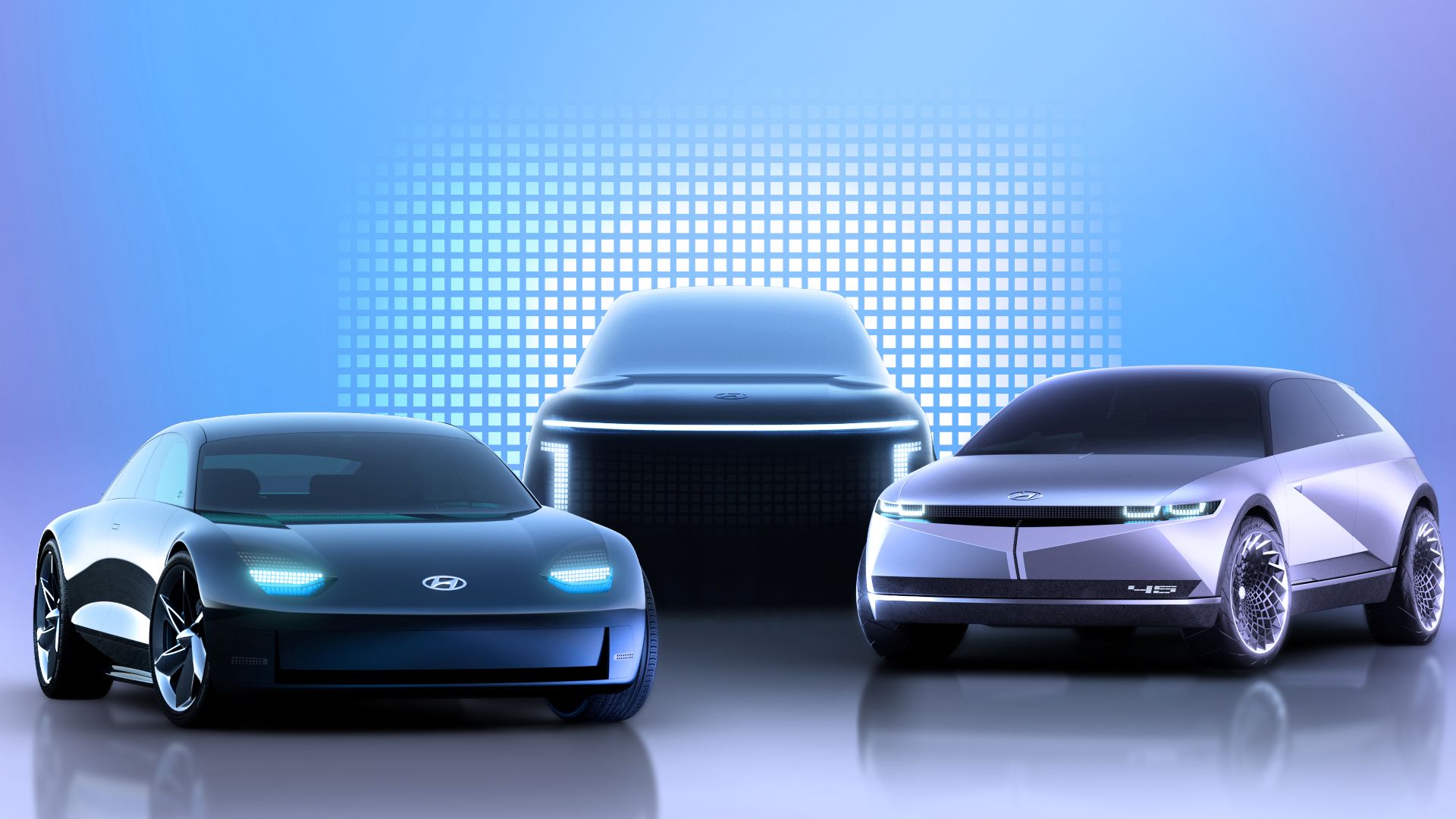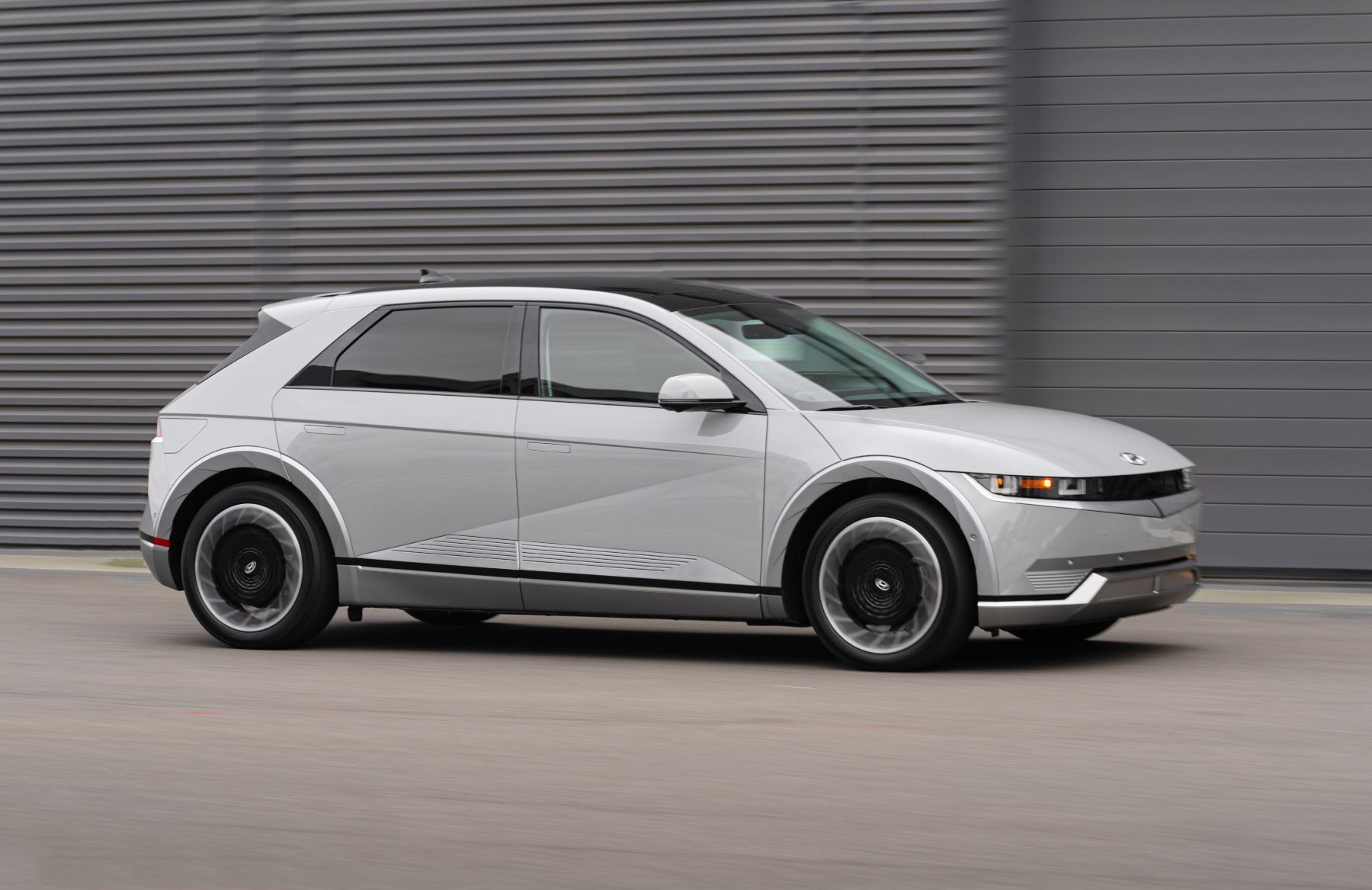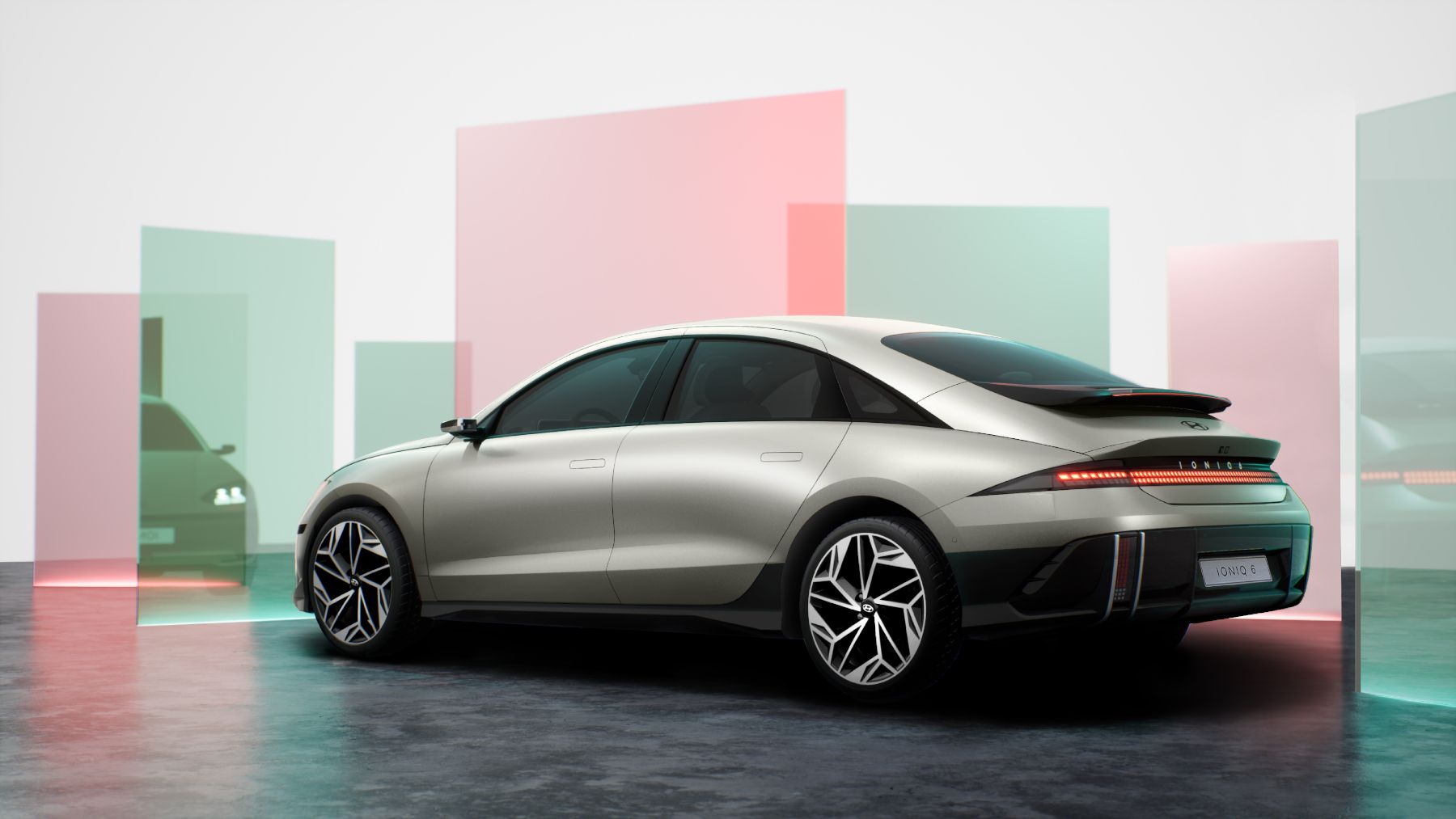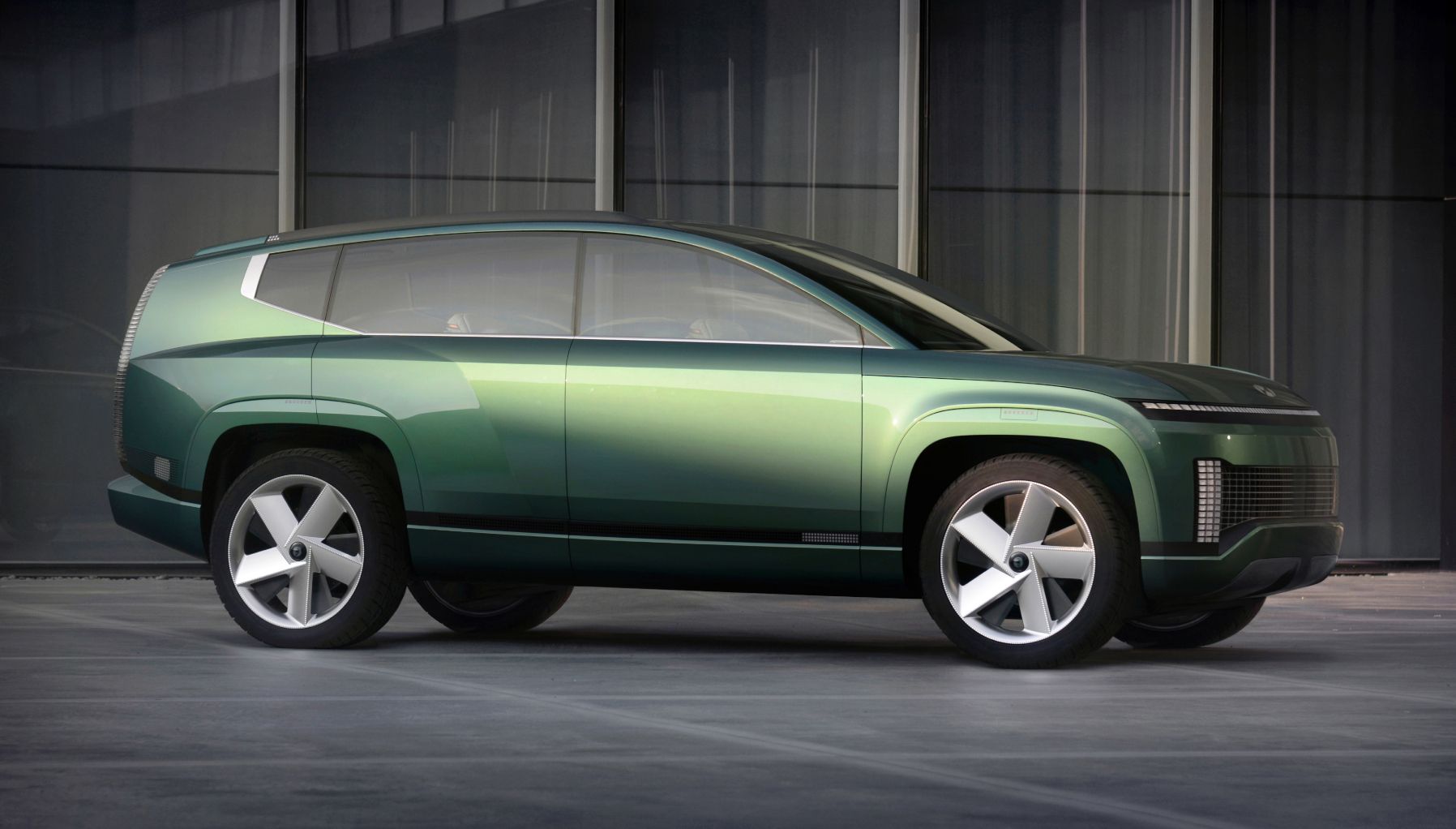Hyundai announced the launch of its Ioniq all-electric sub-brand in August 2020. The Korean automaker hopes to achieve over one million EV sales globally by 2025 and expects its electric marque to contribute with about half of those units. That’s a very bold target indeed. Since its inception, the company has only put out one model in the U.S., the 2022 Hyundai Ioniq 5. However, that is set to change with the 2023 Hyundai Ioniq 6 sedan hitting American shores momentarily, followed by the 2024 Hyundai Ioniq 7 an year later. All these models will sit on the same Electric Global Modular Platform (E-GMP) that underpins the Kia EV6 and Genesis GV60. Can they be the sales success that Hyundai hopes for? Here's what the future holds for the Ioniq nameplate in the U.S.
The Present: Hyundai Ioniq 5
The 2022 Ioniq 5 was the first offering from the Ioniq sub-brand. Launched in 2021, its most striking feature is the retro-futuristic design, which stays very faithful to the Hyundai 45 EV concept first previewed at the 2019 Frankfurt Motor Show. The design incorporates Hyundai’s “Parametric Pixels” philosophy. This comes in the form of boxy, square headlights and “pixelated” LED taillights. On to the numbers, then. The Ioniq 5 is available with two battery packs, a 58 kWh battery in the SE Standard Range version, and a 77,4 kWh pack in the SE, SEL, and Premium trims. The former is only available in 168 horsepower, single-motor rear-wheel-drive form, and is good for 228 miles of range, while the larger battery is available in single-motor rear-wheel-drive with 225 horsepower or dual-motor all-wheel-drive with 320 horsepower. On the larger battery, the RWD version will go 303 miles, while the AWD one can hit 268 miles on a single charge. Starting MSRP ranges from around $41,000 in the base SE Standard Range trim to over $50,000 in the Limited.
The Upcoming Ioniq 6 Wants a Slice of Tesla’s Pie
The 2023 Hyundai Ioniq 6 sedan will premiere in the U.S. at the 2022 LA Auto Show. The “Electrified Streamliner” as Hyundai calls it, will essentially be a sedan version of the Ioniq 5. The styling is somewhat different though and once again remains very faithful to the concept car that precedes it. The powertrain should be the same single-motor RWD or dual-motor AWD that powers the Ioniq 5 and could do the zero-to-60 sprint in about 5.1 seconds. Here, the main highlight is the range. Hyundai claims the Ioniq 6 will get 380 miles from the 77.4 kWh battery on the WLTP cycle, a considerable improvement over the Ioniq 5. That’s courtesy of the much more slippery shape, which boasts a drag coefficient of just 0.21. The interior is very similar to the Ioniq 5’s and makes extensive use of eco-friendly materials. Pricing will probably start close to $45,000, the same as the Ioniq 5 with the long-range battery.
Incoming Ioniq-N Performance Models
Some high-performance versions of Hyundai’s Ioniq cars seem to be in the works through the company’s N division. The automaker showcased the track potential of the e-GMP platform through the RN22e concept. The car previews what an Ioniq 6 N could look like. It packs a total combined output of 577 horses - the same as the Kia EV6 GT - from its dual-motor all-wheel-drive setup. Some of the highlights of the concept involve massive 400mm two-piece brake rotors, three-way adjustable suspension, and a twin-clutch electric torque vectoring system in the rear wheels. The Ioniq 5 is also slated to get an N performance version in the near future. Hyundai suggests a 600-horsepower figure, which implies it uses the same all-wheel-drive dual-motor powertrain as the Kia EV6 GT and the RN22e. The camouflage-clad prototype has been caught testing this year, so it should be very close to making a full launch. We expect it to be available sometime in 2023.
What Does The Future Holds for Ioniq?
In the Ioniq nomenclature, the even numbers represent sedans, while the odd numbers represent crossovers and SUVs. So, while the Ioniq 5 is an entry-level crossover, the Ioniq 6 will be a mid-size sedan, and the Ioniq 7 nameplate is reserved for the company’s upcoming three-row SUV, due to hit the markets in 2024. It will be based on the SEVEN concept first released in late 2021. Given how close the Ioniq 5 and 6 look to their respective concepts, we expect the 7 to remain very loyal to what Hyundai has showcased so far. As for the Ionic 8, there’s very little information about it as yet, but by the same logic, it should be a premium full-size sedan. Perhaps something like an electric version of the Genesis G90.
The Inflation Reduction Act, signed by the Biden Administration in August 2022, could spell bad news for Hyundai. The act lifts the 200,000 EV cap for eligibility for the $7,500 federal tax credit on electric cars, meaning that Chevrolet and Tesla become eligible for the rebate once more. This nullifies whatever advantage the Korean manufacturer still had in that field. But, it gets worse still. The act also limits eligibility to vehicles manufactured within the U.S. The Ioniq 5 and the Ioniq 6 are both produced in South Korea, meaning they won’t be able to benefit from the rebate from January 1st, 2023. This gives a huge advantage to the likes of the Tesla Model 3, Nissan Leaf, and Chevrolet Bolt, all of which have units assembled in America. It potentially puts the Model 3 at a starting price of $39,490, marginally undercutting the Ioniq 5 and upcoming 6. The Nissan and Chevrolet offerings, however, move into a league of their own. The Leaf would start at $20,540 and the Chevrolet Bolt EV at a staggering $18,100, less than half the starting price of the Ioniq 5. This will no doubt force the Seoul headquarters to revise its strategy and consider updating the pricing on its offerings, shifting production overseas to America, or risk becoming uncompetitive against the American and Japanese manufacturers.





